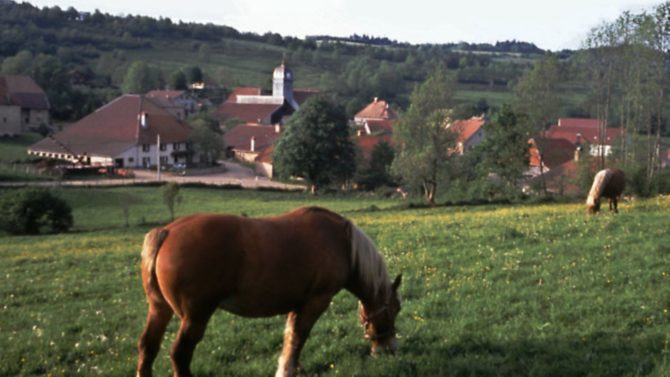Letting out your land

Letting out your unused land can help build relationships and keep the grass down, but Ian Blackshaw points out the potential pitfalls of entering into informal arrangements
One advantage of owning country properties in France is that these usually come with a lot of land. While some people are able to use this land, others simply buy properties with grounds to ensure they have a protected view. So what should you do with your unused paddocks?
Some English friends of ours own a large field at the rear of their French property, which abuts on a farm track.
As they were not using the field for any particular purpose, a local French farmer asked if he could graze a couple of his horses on their land for three months. They thought that this would be a good idea for keeping the grass down and, in a good neighbourly manner, agreed to do so.
The deal was done on a handshake, no written agreement was exchanged and no rent was charged. Our friends thought that by entering into these informal arrangements they were in some way contributing to and promoting the entente cordiale and gaining some brownie points with the French locals in their village.
The horses were duly brought onto our friends’ land and all went well for the first couple of weeks. But then disaster struck.
One evening, one of the horses escaped onto the farm track, collided with a passing car and was killed. Damage was also caused to the car and the owner was none too pleased.
Neither was the farmer. Both of them wanted to seek financial compensation from our friends. But who was legally to blame or responsible? Or was this just an accident for which nobody was liable?
The general principle under French law is that anyone who causes harm to another must make good that harm. Furthermore, if an animal escapes from your land and causes damage to a person or their property, the landowner is, in general, legally responsible.
Our friends had to pay the farmer for the loss of his horse and also the car owner for the damage caused to his car, since the horse had got out because the fencing was not stock-proof. The fact that they did not charge any rent for the use of the land made no difference whatsoever to their legal liability. Fortunately, our friends were, subject to bearing an excess (usually €250 per claim) insured for public liability under the terms of their French property insurance.
DAMAGE LIMITATION
In hindsight, my friends should have entered into a simple form of letting agreement, under which they could have stipulated that the farmer was using the land for grazing his horses entirely at his own risk and completely on his own responsibility.
Furthermore, in the event of a third-party claim arising out of the use of the land – in this instance by the passing motorist – it should have been agreed between the parties that the farmer would fully indemnify our friends against any and all legal claims made against them. In addition, they should have checked that the farmer had the appropriate insurance cover to make good that indemnity.
This agreement should also have included a provision allowing the landowners to terminate the agreement at any time and for any or no reason, entirely at their will and discretion, without incurring any legal liability.
Finally, our friends should have made sure that the land was fit for the purpose for which it was being let, and, if not, made it so. In other words, the land should have been properly fenced so that the horses were contained and not able to escape and cause damage to themselves or anything else.
The moral of this unfortunate tale is that it’s not wise to enter into informal arrangements but that you should provide for all foreseeable contingencies. Properly done, however, you can successfully share your land with your neighbours to the benefit of all involved.
Ian Blackshaw is an international lawyer
www.7valleysbandb.com
Share to: Facebook Twitter LinkedIn Email


